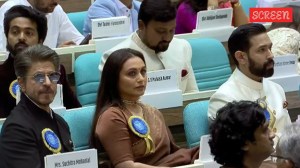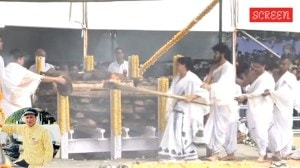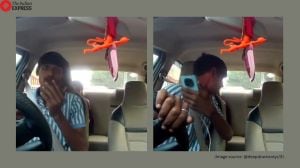Bickerings over CM’s chair in Cong camp
NEW DELHI, October 20: An air of excited anticipation greets visitors to the Talkatora Road headquarters of the local Congress unit nowad...

NEW DELHI, October 20: An air of excited anticipation greets visitors to the Talkatora Road headquarters of the local Congress unit nowadays. Petty bickering over day to day politics no longer figures in corridor gossip sessions, and the trademark infighting among local leaders seems to be a thing of the past. Just the sort of things that happens to political parties when they sense an impending rise to power.
Increasingly hopeful of the BJP’s debacle in the forthcoming Assembly elections, the otherwise deeply divided Congress is putting up a united front to rally behind the DPCC president Sheila Dikshit. All the three major factions in the city led by Sajjan Kumar, Jagdish Tytler and H.K.L. Bhagat have already pledged their complete support to her, and there’s not been a whimper of dissent so far at her calling the `informal’ meeting of the curucal election committee recently.
The chinks in the armour show up only when it comes to the question of who would occupy the chief minister’s chair if and when the party does manage a majority in the house. When asked, most partymen display a tell-tale vagueness. “Let the high command decide” or “Let us win first” is the usual refrain. It’s rather significant they never say it would be Sheila Dikshit.
In fact, as of now, every party leader claiming some degree of seniority is in the race for the top slot. And everyone knows that in politics, silence is sometimes the better part of valour. What might still undo the hopes the party is beginning to harbour to gain power in the Capital however is the infighting that still continues to grip its grass-roots leadership. Though October 13 was the last date for the 82 blocks in the city to hold meetings and forward their lists of the ticket-aspirants to the 12 district observers, not a single meeting has been held till date. “It was impossible to get all the aspirants to sit at the same table and discuss their candidature,” said a block president.
What’s worse is that many ticket-aspirants simply stepped over the proper channel and submitted their cases directly to the Delhi Pradesh Congress Committee. Why? Because, they say, their block president, owing allegiance to an “enemy” camp, refused to entertain their claims. Another stumbling block in the party’s race to form a government in Delhi could be the apparent lack of coordination among its office holders and in its strategy-forming process.
This let the Congress down in its response to such crucial issues as the ongoing onion crisis and the skyrocketing prices of late. It’s the DPCC which decides on strategy, but it’s for the party functionaries to follow up and implement it effectively. If they don’t, it all comes to nothing. “There was an idea to take onions to the residents by Congress workers. But it never took off because no local leader was free to follow it up,” points out a party worker.
When Dikshit called a meeting of the election committee, its convener and former DPCC president Prem Singh wasn’t even intimated about it. The implications are serious, even if Prem Singh himself plays down the issue. “No meeting has been held so far. But if Sheilaji wants to call a meeting at her level she can always to do it,” he says.
Seems like there’s no way Congressmen won’t behave like one. As a DPCC vice-president says, “Infighting is a Congress tradition that we have been carrying since the days of the freedom struggle. Can we suddenly become united, against our very grain?” But a moment later, all hint of the bluster suddenly vanishes. “We just want to come back to power, for that we can do anything,”he says, almost plaintively. “If we don’t come to power this time, our workers will cause the political annihilation of the party in Delhi. They complain to us that no one listens to them”.
“To get respect we have to be in power at some level. But in Delhi we are not in power even in the municipal council, let alone the Assembly or the Centre,” he concludes, nicely summing up what politics is primarily all about.
Photos



- 01
- 02
- 03
- 04
- 05




























